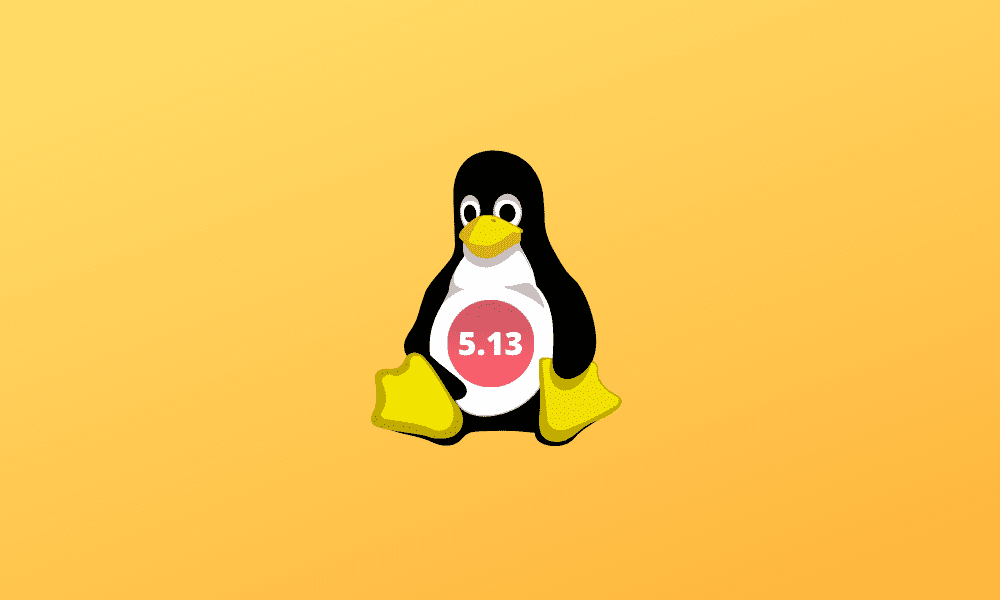After several months of development, Linux Torvalds finally announced the latest Linux kernel – Kernel 5.13 release on Sunday. The chief maintainer of Linux was quoted saying, “So we had quite the calm week since rc7, and I see no reason to delay 5.13.”
One of the important updates with this new release is the native support of Apple M1 silicon devices. Even though this support is still at its formative stage and some core features are still not included (no accelerated graphics), you can expect more updates in future kernel releases.
Tip: The M1 is the first System on a Chip (SoC) designed by Apple specifically for use in Macs. It represents Apple’s shift from Intel processors, which the Cupertino corporation has been using since 2006. Some of the devices already using the M1 chip include MacBook Air (M1, 2020), MacBook Pro (13-inch, M1, 2020), iMac (24-inch, M1, 2021), iPad Pro, 11-inch, etc.
Linux kernel 5.13 brings forth a new “Landlock” security module used alongside the existing modules like SELinux. Landlock’s purpose is to restrict ambient rights for a collection of processes running on the system. For example, global filesystem access would be considered a security risk. Still, on security, this new kernel allows keys from sources other than Trusted Platform Module (TPM), which is not present on all systems. Trusted keys are now managed in the ASN.1 format.
One internal kernel change worth noting is that the software-interrupt processing code has made it to the mainline kernel. The kernel threads handle all software interrupts in real-time mode. Interrupts can be preempted by a process with much higher priority.
Below is a list of all Kernel 5.13 updates and changes that I found worth mentioning.
Processors:
- Support for Apple M1 SoC: Even though this comes as a relief to users who want to run Linux on Mac, the support is still at its basic stage, and features like accelerated graphics, etc., are being worked on. You can expect a lot more updates on this on the next kernel release.
- The AMD Zen CPU Energy driver is removed on kernel 5.13: Unfortunately, the driver was not removed to pave the way for another superior driver but rather because of a disagreement between upstream kernel maintainer(s) and AMD over exposed energy senors. The AMD energy sensor information has been limited to the root user for some time now, mainly due to the PLATYPUS security vulnerability.
- Linux 5.13 Adds An Intel Cooling Driver: The introduction of the “intel_tcc_cooling” driver is intended to downclock the newer Intel mobile/desktop CPUs at a lower threshold. With this new driver, users are not limited to the default Thermal Control Circuit (TCC) activation temperature. They can set a lower threshold offset.
- Turbostat updates include AMD Zen Fix and New Intel CPU Support: The turbostat utility in Linux is used in reporting processor topology, frequency, idle power-state statistics, temperature, and power on X86 processors. With Linux 5.13 release, turbostat now includes support for Alder Lake mobile processors and Ice Lake D. It also introduces a fix to the AMD Family 17h “Zen” support.
- The Linux perf tool: This performance analyzer tool in Linux has also received a set of updates with the Linux 5.13 release. It includes support for hybrid PMUs and the
--iostatoption that collects and present I/O stats for Intel hardware. - Many Exciting RISC-V Improvements: There are many updates on RISC-V you can expect with Linux 5.13 release. Support for KProbes supports memtest= kernel argument, a new errata framework, better handling when using the LLVM Clang, and support for sv48 systems.
- Loongson 2K1000 Support: Loongson is a family of general-purpose MIPS64 CPUs developed at the Institute of Computing (ICT) in the Chinese Academy of Sciences (CAS). Linux 5.13 finally includes Loongson 2K1000 support in the mainline kernel.
- PowerPC architecture: The pull request made for the PowerPC architecture includes various updates for 32-bit work like support for KFENCE and eBPF.
- Microsoft’s Hyper-V changes: These updates, which were merged last week, include support for VMBus enhancements and, most notably, the new patch for “running Linux as Arm64 Hyper-V guest.”
- KVM updates and changes: The most notable update is the new KVM API which includes support for AMD Secure Encrypted Virtualization (SEV) live migration of guests. Other notable updates with KVM include support for AMD SEV virtual machines to share the same encryption context, support for virtual SPEC_CTRL handling, and some improvements for SYSENTER emulation on kernel 5.13.
- AMD’s Crypto Co-Processor Driver updates: With Linux 5.13 release, the AMD “Green Sardine” APU support has been added to the AMD Cryptography Co-Processor (CCP) driver.
- Intel Bus Lock Detection: The code for Intel Bus Lock Detection has finally landed on Linux 5.13. This code is important for CPU performance.
- Concurrent TLB Flushing to provide some minor performance benefit.
Graphics:
- Intel Alder Lake S graphics support. With Linux 5.13 release, intel’s engineers dealing with opensource software have pushed the “Rocket Lake S” code.
- AMDGPU FreeSync HDMI support: With Linux 5.13 release, the FreeSync HDMI should now fully work, at least with pre-HDMI 2.1. Additionally, support for Display ASSR is enabled, and more 10bpc dithering improvements are included.
- Generic USB Display Driver: The opensource Generic USB Display Driver (GUD) opens up a new world of possibilities. For example, converting your Raspberry Pi Zero into a USB to HDMI display adapter. The driver is licensed under MIT to allow and encourage porting to other systems like BSD.
- Support For Intel DG1 Graphics Platform Monitoring / Telemetry
Conclusion
Those are some of the changes and updates you can expect with the Kernel 5.13 release. If you are keen and willing to experiment, you can follow the installation instructions on the mainline kernel page.

